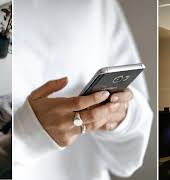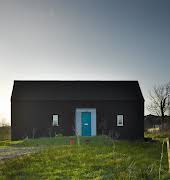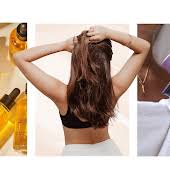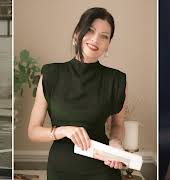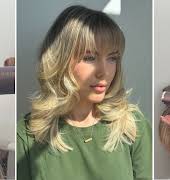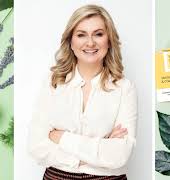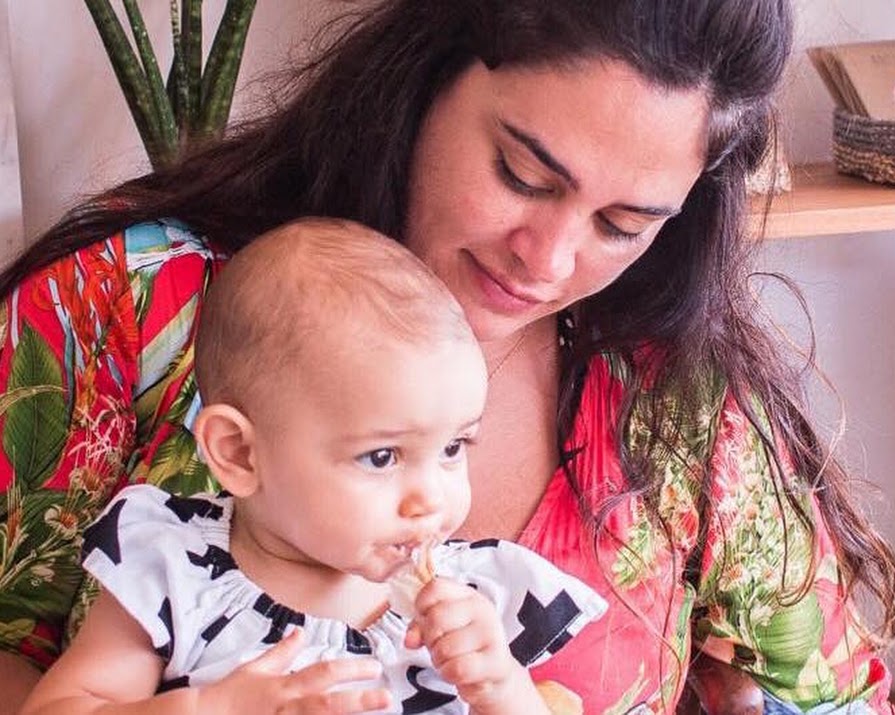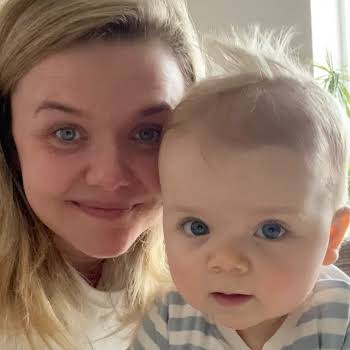This eco-friendly tampon brand is helping to fight period poverty in Ireland
By Grace McGettigan
07th Mar 2019
07th Mar 2019
As it’s the week of International Women’s Day, we want to shine a light on women supporting women. During the week, we caught up with Jette, a mum-of-one, who has recently launched a company selling eco-friendly (and body-friendly) sanitary products. Not only is she passionate about improving women’s health, but she’s also working to protect the environment and reduce period poverty. Here’s everything you need to know…
“I kind of got a bit scared about how the world is for women, especially raising a girl in this world,” Jette Virdi, founder of ilo tells us. “With social media and body shaming, and these unbelievable standards we’re held to when it comes to looks, how you think and feel – I just wanted to make a difference.”
Jette’s new company puts women’s health – and the environment – first. What’s more, it promotes education around menstrual health for people of all genders; all the while fighting period poverty. What seems a difficult task, she’s tackling head-on.
Tampons, toxins and education
Jette says the sanitary products currently on the market aren’t good enough for our health. “Mainstream sanitary products are full of toxins and chemicals, and recent research has shown they’ve been linked to endometriosis, fertility problems, and immune system issues. They’re really toxic for your body,” she says.
The aim of ilo (pronounced eye-low) is to encourage anyone who has periods – girls, women and trans women – to understand their menstrual cycle. “Your menstrual cycle can actually tell you so much about your overall health,” Jette explains.
Related: One tampon takes longer to degrade
than the average woman’s lifespan
“For me, knowing about your menstrual cycle and using the right products is the ultimate form of wellness. You can eat organic food, you can use organic skincare and make-up, but your vagina is the most absorbent part of your body. If you’re still putting in toxins on a monthly basis, year-after-year, it doesn’t matter what the rest of you is doing.
“On average, we’ll bleed for about 40 years, which is a really long time to be using chemically-loaded, mainstream sanitary products.
“I want to educate people on how toxic mainstream products are,” she says, “and why going 100% organic – that is 100% organic cotton – is so much better for your body.”
View this post on Instagram
Match your tampon to your flow
Did you know wearing the wrong size tampon for your flow can damage the inside of your vagina? “Using ‘super’ tampons for the whole six days of your period is not good,” Jette explains.
“Your flow will be different on every day of your period,” she says, “and one of the reasons toxic shock syndrome can happen is because you’re using the wrong size tampon.
“When you use a tampon, it doesn’t just absorb the blood. It absorbs all of your fluid down there as well. And if you’re using a ‘super’ tampon on a day when your flow is really light, it’s going to cause little, tiny abrasions inside; and that’s where toxins start to accumulate.”
“We decided to have different absorbencies in each pack because you should be using the lowest absorbency for your flow.” For example, if you generally have a heavy period, she suggests the ‘super mix’ box, which comes with six ‘super’ and 10 ‘regular’ tampons.
View this post on Instagram
An environmental issue
“Any menstrual product, no matter what it is, shouldn’t be flushed down the toilet,” Jette warns. “But because ours are 100% organic cotton, it means they are 100% bio-degradable.
“Menstrual waste is such an issue right now,” she says. “At the moment, it’s said 100 billion menstrual products are thrown away around the world each year, and only 10% of that can actually be recycled. So, not only are ilo tampons good for your body, but they’re also good for the environment.”
When you’ve used one, just pop it into your normal bin, and when it goes to landfill, it will bio-degrade because it’s made of one natural component.
We need to talk about periods
Jette says she wants to reshape the conversation about periods; to make them less taboo and more part of everyday life.
There’s already been some improvement; in that people on Twitter and Instagram are beginning to talk about their periods, cramps and PMS. “But there’s a long way to go,” she says.
“Research done in Ireland found that one in 15 girls still feels embarrassed to talk to their mum about her period. For something that’s such a natural thing to happen to our bodies, month after month, it’s such a sad thing that they feel that way,” Jette says.
“I want my daughter Molly to grow up in a world where she’s not embarrassed to talk about periods; that it’s not shameful; and I want every other kid to grow up that way.”
View this post on Instagram
Awkward public bathroom moments
Recently at IMAGE HQ, our team got into a conversation about periods and how oddly embarrassed we feel about them. For example, if one of us is on our period, we tend to sneak a tampon or sanitary pad discreetly out of our handbag, behind our back; before scurrying quickly to the bathroom.
Inside the cubicle, we try to open the packaging as quietly as possible, so as the woman in the cubicle next to us won’t hear (despite the fact that she’s probably doing the same thing).
Considering we’re an office made up (predominantly) of women, this needs to change. We all bleed. It’s nothing to be shy or embarrassed about.
Helping to fight period poverty
Part of opening the conversation about periods involves tackling period poverty. Many women around the country, especially those on lower incomes, are forced to choose between sanitary products and putting food on the table. These women are forced to create make-shift sanitary products, out of folded tissue paper or rolled-up socks, for example.
This isn’t good enough.
Related: This is why you need to open your eyes
to Ireland’s period poverty problem
Jette has decided to donate 50% of all ilo sales to fighting period poverty in Ireland. “Research done last year found that 50% of 17 to 25-year-olds can’t afford menstrual products on a regular basis. That number is huge. For a first-world country, that’s crazy.
“Again, it comes back to ‘what kind of world do I want Molly to grow up in?’ I’m doing this for Molly, other kids, and future generations,” she tells us.
“I don’t need to keep all the money from sales – I can still provide for my family – but if I can make someone else’s life better, why wouldn’t I want to do that?”
View this post on Instagram
ilo and International Women’s Day
From International Women’s Day, Jette’s organic ilo tampons will be available to buy online; both on a one-time purchase basis and a monthly subscription basis. There’s also a rewards system; whereby you get a discount code for every order number you share with a friend.
Not only that, to celebrate International Women’s Day, Jette is giving 10% off all ilo orders to IMAGE.ie readers who use the code IMAGEXILO.
Other ways to have an eco-friendly period
If you’re committed to reducing menstrual waste, there are a number of things you can do to cut down. Shopping brands such as ilo or Natracare, both of whom use organic, compostable cotton (no chemicals and perfume-free) is a good place to start.
Alternatively, you could try a menstrual cup from Mooncup. This is made of soft, medical-grade silicone and can be inserted into the body to collect blood during your period. It can hold three times as much as a tampon, making it ideal for heavy days; and what’s more, the non-absorbent properties of the silicone means it won’t cause dryness or irritation on light days.
Lastly, you could try period pants from WUKA. The underwear is made from four layers of stretchy fabric, each with their own specific role. The inner and outer layers are soft, breathable and moisture-wicking; the central layer can absorb up to four tampons worth of blood and has antibacterial properties; while the leak-proof layer prevents blood from leaking out onto your clothes.
You can wear them for up to eight hours on light days and four-six hours on heavy days. They’re easy to wash too; either machine-wash alone at 40 degrees and line dry, or rinse and chuck them into your black wash. Simple.
Photo: Jette and daughter Molly, via @ilo.women on Instagram
More like this:


